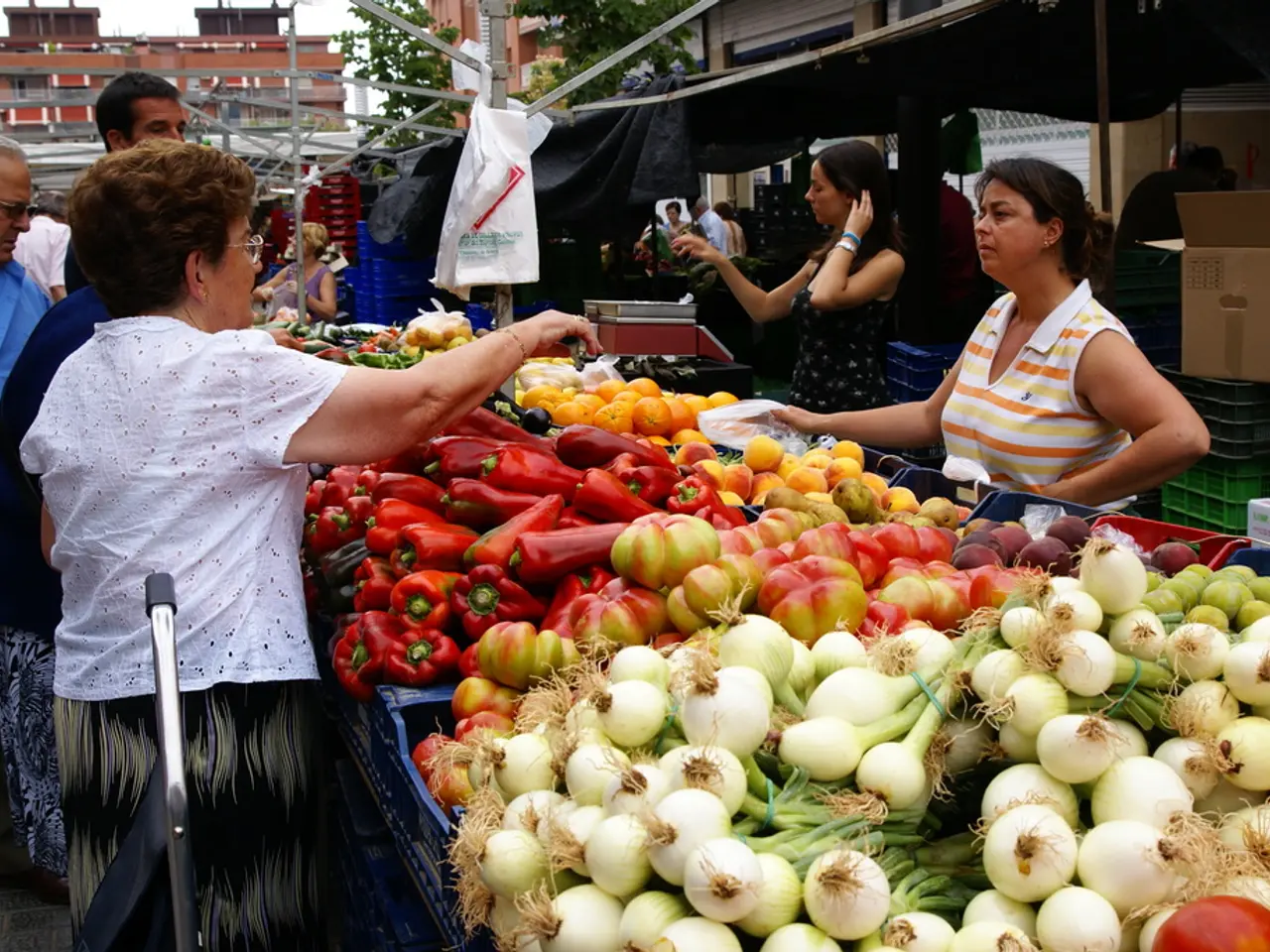European alliance advances efforts to preserve plastic recycling sector amid concerns of impending collapse
The European plastics recycling industry is facing an existential crisis, according to a coalition of over 200 organisations, including P&G, Searious Business, Maastricht University, TOMRA, and the Helmholtz-Zentrum Dresden-Rossendorf (HZDR). The coalition, which aims to address the crisis through the "Ring the Bell for Recycling" campaign, has warned that urgent action is needed to prevent the potential collapse of the industry.
The campaign, which encourages participants to ring a bell and join the recycling reform movement, is touring exhibition stands at K-Messe, Duesseldorf from 8 - 15 October. The Elephant High Striker, a symbol of the crisis, will be present at the event.
Willemijn Peeters, CEO of Searious Business, has warned that Europe is on the brink of collapsing its recycling industry without urgent action. Peeters believes that recyclability alone cannot solve Europe's plastic waste crisis, and that systemic change is required to meet recycling and recycled content targets.
The coalition recommends using extended producer responsibility (EPR) and market-based incentives to ensure profitability and close the cost disparity between virgin and recycled plastics. They also suggest phasing out fossil fuel subsidies and internalizing external environmental costs to correct market distortions.
The Plastics Recyclers Europe has provided a six-point checklist to save Europe's plastics recycling industry. They blame cheap recyclate imports, declining demand for EU-made recyclates, growing economic pressures, and 'excessive red tape' for the potential collapse of the industry.
The EU is encouraged to invest in infrastructure and innovation to make high-quality feedstock more accessible. Producers, converters, and brands are prompted to increase their utilization of recycled content to generate demand for European recyclates.
Since 2020, the European recycling industry has made significant investments, with 12.5 million tonnes of installed capacity and €5 billion invested between 2020 and 2023. However, recycling plants across Europe are closing due to high recyclate costs and the broken economics of the plastics recycling industry.
The coalition invites recyclers, brands, policymakers, and stakeholders to sign their Industry Statement, which will be delivered to the European Commission. Other signatories to the Statement, apart from Searious Business, include EREMA, Sintac Recycling, FIMIC, OCS, Bas van den Ende - Kunststof Recycling, Nordson, SKZ, HolyPoly, Berga Recycling, Healix, De Paauw, Circle Economy, Velzy, and VDMA.
Virgin plastics remain cheaper than plastic recyclate due to fossil fuel subsidies, creating an unfair economic advantage for virgin plastics. The coalition urges the EU to enforce ambitious recycled content targets and strict standards for imported recyclates to level the playing field.
In conclusion, the "Ring the Bell for Recycling" campaign aims to raise awareness about the existential crisis faced by Europe's recycling industry and to encourage action to prevent its potential collapse. The coalition's Industry Statement, which calls for systemic change, increased utilization of recycled content, and the phasing out of fossil fuel subsidies, provides a roadmap for a more sustainable future for Europe's plastics recycling industry.
Read also:
- Peptide YY (PYY): Exploring its Role in Appetite Suppression, Intestinal Health, and Cognitive Links
- Toddler Health: Rotavirus Signs, Origins, and Potential Complications
- Digestive issues and heart discomfort: Root causes and associated health conditions
- House Infernos: Deadly Hazards Surpassing the Flames








